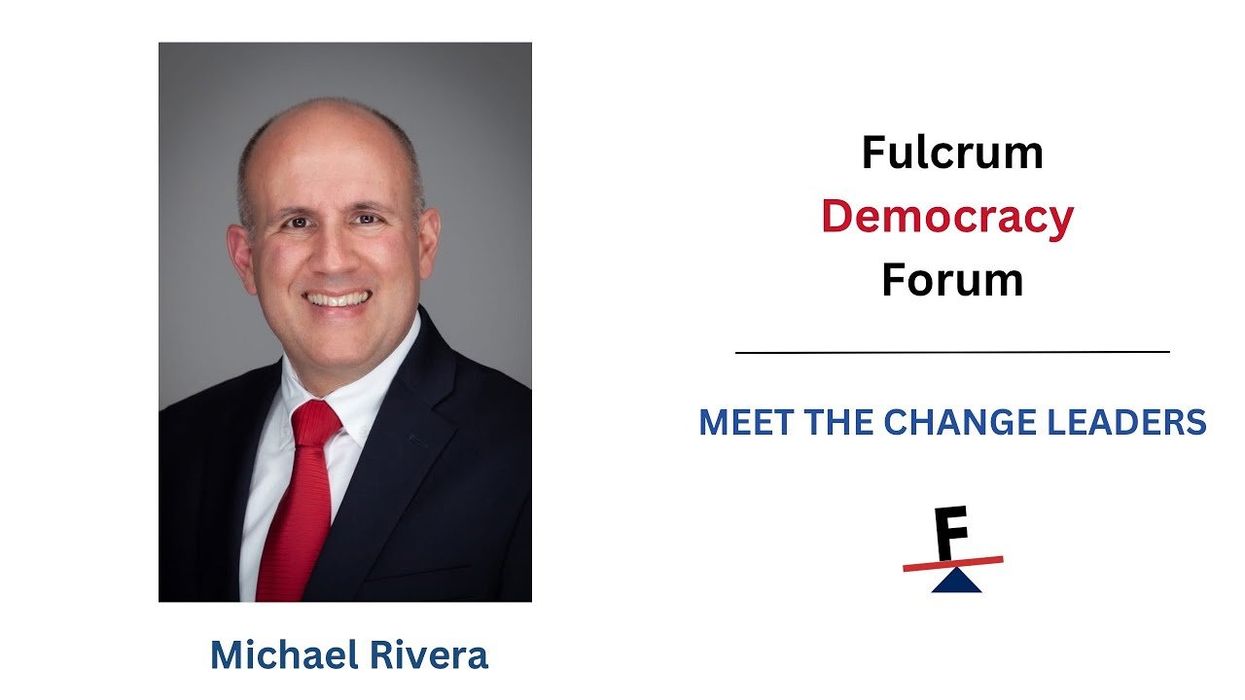Michael Rivera is the Berks County Commissioner. The Republican began serving in January of 2020.
"My number one priority is fiscal responsibility," Rivera said in describing the focus of his work as County Commissioner. "Counties generate their money primarily through property taxes. My commitment to the residents of Berks County is to be fiscally responsible with their money."
I spoke with Commissioner Rivera on a recent episode of the Fulcrum Democracy Forum (FDF). The program engages citizens in evolving government to better meet all people's needs. Consistent with the Fulcrum's mission, FDF strives to share many perspectives to widen our audience's viewpoints.
I met him while recording the first episode of The 50, a four-year multimedia project that visits with the public where they live across all 50 states to learn what motivated them to vote in the 2024 presidential election and see how the Donald Trump administration is meeting those concerns and hopes.
- YouTube youtu.be
Pennsylvania, with the largest electoral prize of all major swing states, was a highly coveted prize for Vice President Kamala Harris and then-President Donald Trump in the 2024 race for the White House. It was predicted that the winner of the Keystone State was highly likely to win the entire election.
It was fitting for us to begin The 50 project by visiting Reading, PA. The majority Latino city inched a win for Harris, but ultimately Trump easily won Berks County, home to Reading, by 12 points and the state by more than 50% of the vote.
I spoke with Rivera about the aggressive moves coming from Washington, D.C., and their impact on people, particularly Reading's immigrant community. Rivera explained that many of his constituents aren't opposed to immigrants who come to the country legally and reacted favorably at the polls to Trump's closing-the-border campaign.
Rivera agrees that the broken immigration system must be fixed to make it easier for people to come to the U.S., as the economy depends on it. "There are more job openings than there are people that are able to fill those jobs," he said. "We're not going to birth our way out of that. The way we're going to do that is through people coming in through legal immigration. So, the laws here in the United States do need to be improved."
The Pew Research Center estimates that more than 8 million undocumented immigrants are working in the U.S., representing about 5% of all workers.
Rivera was born in Pottstown and lived there till the age of 6, when he and his family moved to Puerto Rico, where he grew up and got married. In 1996, he and his wife moved to Pennsylvania to start their real estate business. He is a Real Estate professional at Keller Williams Platinum Realty in Wyomissing.
Rivera also worked as Assistant Vice President of Business Services at the Greater Reading Chamber of Commerce & Industry, where he assisted and guided entrepreneurs and business owners in obtaining the resources they needed to succeed. He developed and implemented programs to help small businesses grow and become sustainable.
He resides in Bern Township with his wife, Zylkia, and their children, Andre and Adriana.
SUGGESTIONS:
Gregg Amore: Faith in Democracy
Nate Gilliam: Love & Frustration
Leading With Passion and Purpose
Hugo Balta is the executive editor of the Fulcrum and a board member of the Bridge Alliance Education Fund, the parent organization of The Fulcrum. He is the publisher of the Latino News Network and the only person to serve twice as president of the National Association of Hispanic Journalists (NAHJ).




















Trump & Hegseth gave Mark Kelly a huge 2028 gift